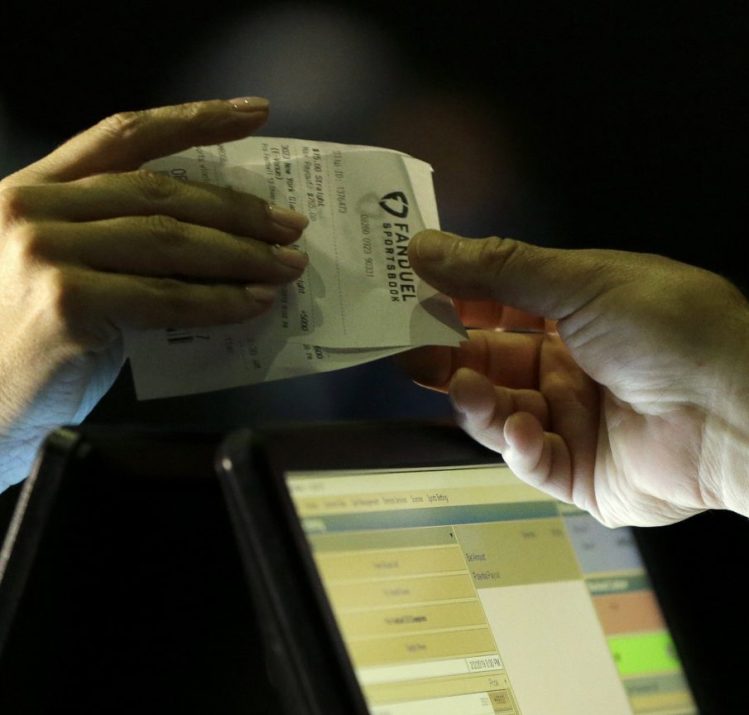ATLANTIC CITY, N.J. — Two U.S. senators from opposing parties are proposing that the federal government take back control of sports gambling, the first formal move by Congress after a Supreme Court ruling reopened a complex debate over fans betting on games and who controls the action.
Several states have begun offering sports betting after New Jersey won a long-fought challenge in May, and many others are expected to take up the issue during new legislative sessions in 2019 as a way to generate millions in revenue.
The federal bill introduced Wednesday by Sen. Charles Schumer, a New York Democrat, and Republican Sen. Orrin Hatch of Utah would have the U.S. Justice Department set minimum standards for states to offer sports betting. It does not explicitly provide the sports leagues the cut of gambling revenue they have been seeking, so-called “integrity fees,” but does not prohibit them, either.
“I knew that Congress had an obligation to ensure that the integrity of the games we love was never compromised,” Schumer said of the Sports Wagering Market Integrity Act of 2018. “That is why I believe the time is now to establish a strong national integrity standard for sports betting that will protect consumers and the games themselves from corruption.”
Hatch said that once the Supreme Court struck down the Professional and Amateur Sports Protection Act in May, “I began working with stakeholders to ensure we were doing everything possible to protect the integrity of sports from corruption.
“The legislation we’ve introduced today is the culmination of eight months of high-level meetings, discussions and negotiations, and will serve as a placeholder for the next Congress, should they decide to continue working to address these issues,” said Hatch, who is retiring soon but wanted to show bipartisan support for federal regulation.
The NFL weighed in Wednesday with a letter to the senators expressing support for the bill.
“The threats posed to the integrity of sporting contests cannot be confined within state borders,” wrote Jocelyn Moore, an NFL executive vice president. “Without continued federal guidance and oversight, we are very concerned that sports leagues and state governments alone will not be able to fully protect the integrity of sporting contests and guard against the harms Congress has long recognized as being associated with sports betting.”
The bill also would provide federal funding from sports betting taxes for programs to address problem gambling.
The eight states that already offer sports betting could still offer it while the Justice Department evaluates the state laws.
So far, legislatures in Nevada, New Jersey, Delaware, West Virginia, Mississippi, Pennsylvania and Rhode Island have legalized sports betting. New Mexico has not passed a sports betting law, but the Santa Ana Star Casino & Hotel started taking sports bets in October through a tribal gambling compact. City lawmakers in Washington also voted to legalize sports betting in the District of Columbia on Tuesday, legislation that requires congressional approval but would make the nation’s capital the first U.S. jurisdiction without casinos to authorize sports books.
Eilers & Krejcik Gaming, which tracks sports betting legislation, predicts 30 states will consider legislation in the new year.
The bill would require sports wagering operators to use data provided or licensed by the leagues. Legislating that could be tough, as data source requirements have been challenged in other ways, with courts holding that fantasy sports operators aren’t required to use official league data.
The bill also would create a National Sports Wagering Clearinghouse to receive and share sports wagering data and suspicious transaction reports among wagering operators, state regulators, sports organizations and federal and state law enforcement.
Send questions/comments to the editors.



Success. Please wait for the page to reload. If the page does not reload within 5 seconds, please refresh the page.
Enter your email and password to access comments.
Hi, to comment on stories you must . This profile is in addition to your subscription and website login.
Already have a commenting profile? .
Invalid username/password.
Please check your email to confirm and complete your registration.
Only subscribers are eligible to post comments. Please subscribe or login first for digital access. Here’s why.
Use the form below to reset your password. When you've submitted your account email, we will send an email with a reset code.